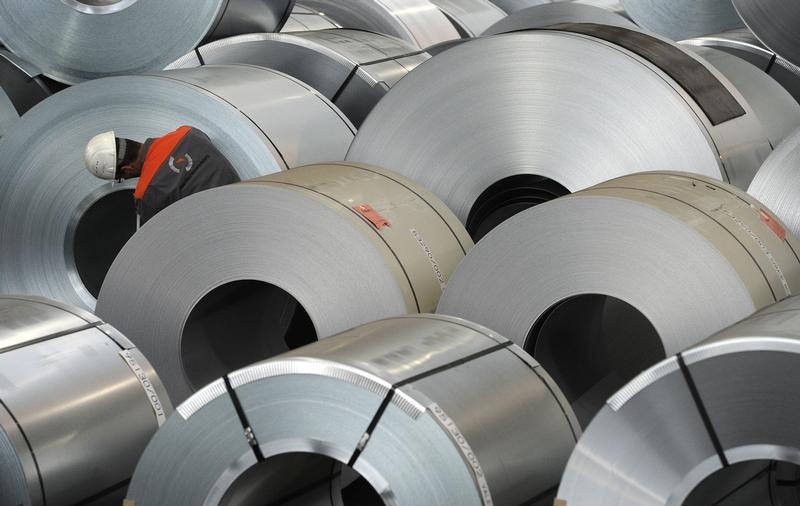* Nippon Steel ends decades-old fixed price settlement mechanism
* To use 3 coking coal spot price indexes to set quarterly prices
* Index-linked pricing mechanism is used by more buyers, sellers (Adds comments and details)
TOKYO, June 12 (Reuters) - Japan's top steelmaker, Nippon Steel & Sumitomo Metal Corp 5401.T will set quarterly coking coal prices using spot price indexes starting from the current quarter, a company spokesman said on Monday.
The decision to move to spot prices ends a decades-old system where bilateral talks between buyers and miners worked out a fixed-price settlement. Nippon Steel's decision follows recent swings in the prices of the key steel-making ingredient.
"We have decided to shift the way we set coking coal prices with suppliers for our quarterly term contracts to index-linked pricing from the current fixed pricing settlement through bilateral negotiations," the spokesman said.
Behind the shift are the spreading global trend that buyers and sellers use spot price indexes to set prices and an increasing number of unpredictable factors such as the recent Cycle Debbie in Australia, the world's largest coking coal exporter, and China's policy on coal output, he said.
"A declining number of reliable suppliers whom we could set benchmark prices (with) is another reason," he added.
Coking coal supply contracts between Australian miners and Japanese steelmakers are used as a global benchmark.
The decision confirmed a Reuters report that the days of the benchmark system is over and pricing will be set by the average of a daily spot price. Japanese company will use three spot price indexes provided by pricing services such as S&P Global Platts and Argus Media to set quarterly prices, the spokesman said. He declined to give more details or the price for the April to June quarter.
Japanese steelmakers led by Nippon Steel previously resisted more flexible pricing, preferring the stability of prices and supply under term contracts, but the recent volatility has made it difficult to come to a swift agreement with suppliers.
Coking coal prices have also been unusually volatile over the last year, nearly quadrupling between March and late November 2016, and halving by the end of March 2017, before Cyclone Debbie sent prices higher again.
The cyclone knocked out supply chains and forced a hiatus in talks on coking coal prices that would have normally ended by March or April. The storm also caused Japanese steelmakers to scramble for alternative supplies.
